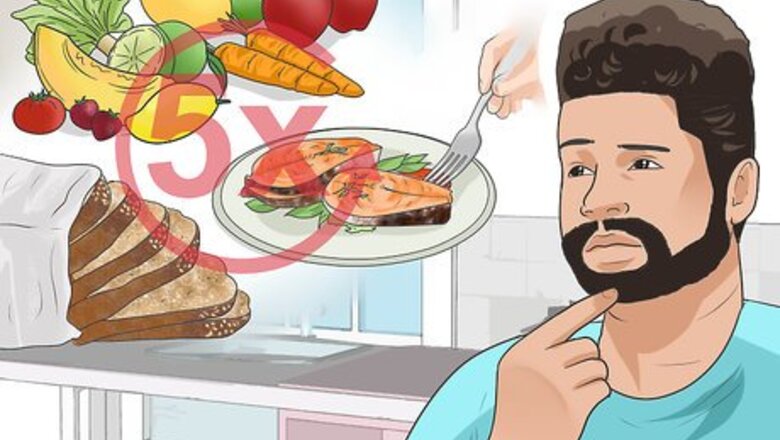
views
Choosing a Healthy Diet
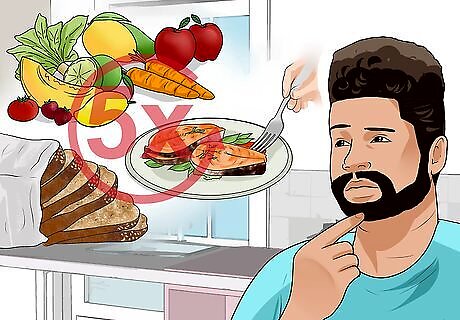
Aim for 5 to 6 small meals each day. People who are underweight may get full faster than others. Instead of eating the typical two to three large meals, break your meals down into 5 or 6 smaller meals to enjoy throughout the day. Strive to eat a small meal or snack every 3 or 4 hours. For example, if you rise at 6am every morning, you will want to eat breakfast within the first hour before 7am. Then, you can have a healthy snack around 10am, lunch at 12pm or 1pm, another snack around 4pm, and dinner at 7pm. If you are hungry later, enjoy a small snack or dessert before 9pm so that you are not eating too close to your bedtime.
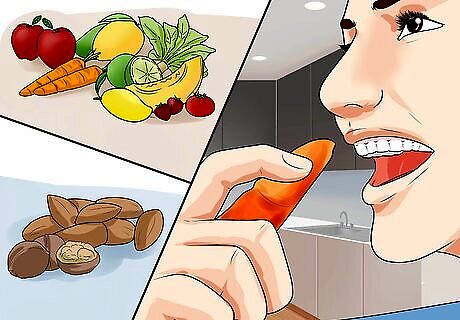
Choose nutritious, whole foods. The very best method to improve likelihood for increasing weight in a healthy way is to consume a nutrient-rich diet. Select vegetables, fruits, lean sources of protein, whole grain breads, pastas, and cereals and nuts and seeds for an overall healthy diet. Doing so may help you to gain a few pounds, and it may also support greater physical and mental health. Examples of nutritious snacks to help you pick up weight may include nuts and seeds, dried fruits, granola bars, bean spreads with chips, and fruit juice or nectar.
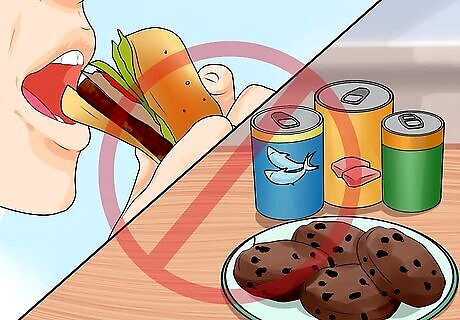
Refrain from eating empty-calorie junk foods. It may be tempting to gorge on high-calorie processed foods just to see an increase on the scale. But that route is not beneficial for relieving your depression, increasing your energy, or improving your mood. Remember that you get your energy from foods. If you choose packaged foods that are loaded with sugar and salt, you are basically fueling your body with these. Beware of eating from packages since that tends to indicate “fake”, processed foods. Also, avoid the fast-food drive-thru and try to cook more meals at home.
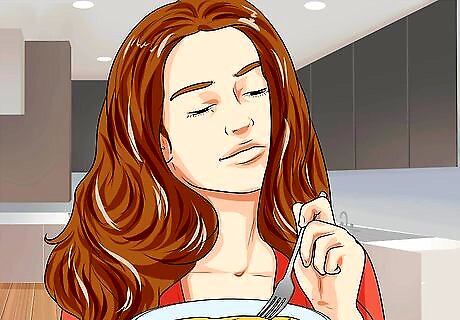
Top your foods with extras. If you are trying to put on weight after a sudden loss, it can be helpful to supplement your usual meals with fatty extras. Again, you're not going for unhealthy or empty-calorie foods. Instead add on healthy fats to increase your calorie intake without sacrificing nutrition. For instance, you can add in veggies and healthy fats like avocado to your morning omelet. Swap out skim milk for whole milk. Dip your apples in all-natural peanut butter for snack.
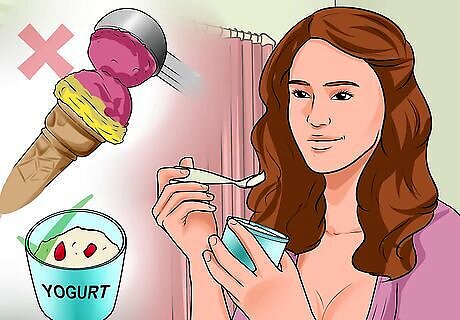
Enjoy the occasional treat. Even though you can afford to put on some extra pounds, you still don't want to consume excessive sugar and unhealthy fats. However, an occasional treat can be a nice perk when eaten in moderation. If you like ice cream, treat yourself to frozen yogurt. Or, mix up a batch of cookies made from healthy ingredients like oatmeal and applesauce.
Exercising for Increased Appetite
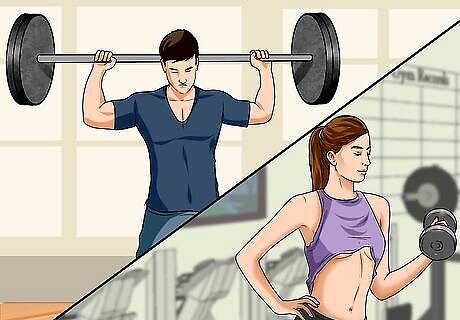
Try out strength training. If you are a woman, you may be hesitant to lift weights. Don't be. Strength training is an asset to overall physical fitness and improved mental health. Plus, this method of exercise allows you to build muscle mass and pick up weight in a healthy way. You can practice strength training in a number of ways, including free weight exercises with dumbbells, body weight exercises, weight machines, or resistance tubing activities. If you are new to strength training, you may want to consult with a doctor or fitness expert before starting a new regimen.
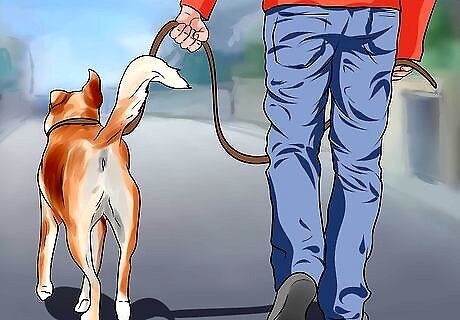
Take a walk. You might think that exercising to gain weight is counterintuitive. “Why workout if I am not trying to lose weight?,” you ask. In the same vein that exercise burns calories, it also boosts appetite. Even light, minimal activities like walking or jogging can prompt a desire to eat afterwards. Give it a try. Put your dog on the leash and go for a trot around the neighborhood. Visit your local walking/jogging track. Or, simply go for a hike through the woods. In addition to stimulating your appetite, going outside in nature to exercise can also improve your mood.
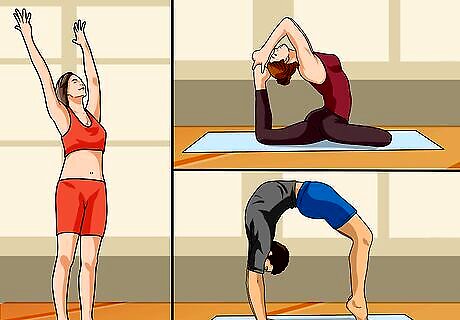
Give yoga a chance. There are various forms of yoga—from gentle, relaxing techniques to heart-pounding strenuous routines. Check out the different types and try it out. Yoga can ease your depressive symptoms and lift your mood, giving your more energy and increasing your appetite.

Go for a relaxing swim. Any sort of aerobic exercise (i.e. those that promote cardiovascular healthy by getting the heart pumping) is good for battling depression. These exercises also release “feel-good” chemicals in the brain called endorphins that enhance mood and outlook. However, many people find swimming to be especially helpful. It works because the exercise works your entire body while the water soothes and calms. Plus, you can regulate the activity to suit your needs, swimming more vigorously or softly as desired. Not to mention, many people feel hungry for a meal after a long swim, so going for a dive can reverse the effects of a diminished appetite.
Treating Depression
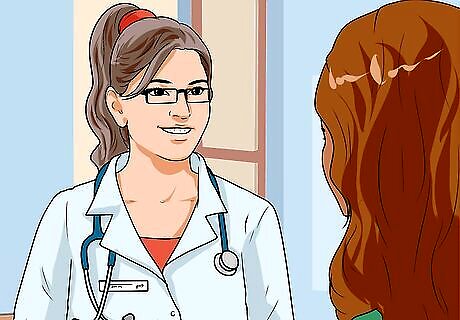
Visit your doctor. Before you start a plan to gain weight while depressed, you need to verify that depression is the primary cause of weight loss and not just a symptom. Certain medical conditions like cancer or hyperthyroidism can also cause weight loss, so it is important for you to be evaluated by a doctor. Your doctor will ask questions about your symptoms, review your medical history and family history, and perform a physical examination. If your doctor can find no other possible causes for weight loss, then he or she will clarify your diagnosis of depression. Signs of depression include feeling hopeless, losing interest in once pleasurable activities, experiencing changes in sleep and appetite, and having a lack of energy. At this point, your doctor will talk to you about treatment options and/or refer you to a psychologist or mental health therapist.
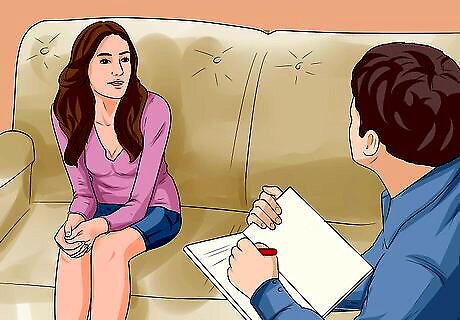
Participate in talk therapy. Most people are treated with a combination of psychotherapy and medications. Psychotherapy, or talk therapy, is directed towards helping you develop skillsets for coping with life's problems. By far, research shows that the most effective form of psychotherapy for depression is cognitive behavioral therapy, which focuses on bringing awareness to negative and unhelpful thought patterns and building healthier, more realistic ways of viewing life and the world. Your doctor may refer you to a therapist, but keep in mind that you can choose someone else if the initial choice does not suit you well. Some people work better with certain types of therapist, so don't be afraid to try out a few until you feel comfortable.
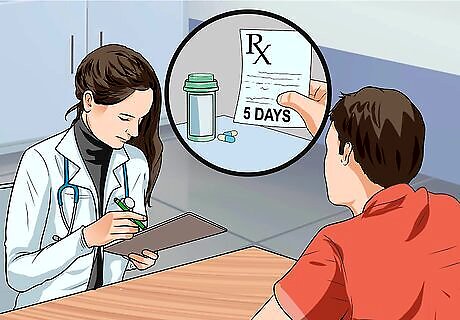
Consider medication. Depending on the severity of your depressive symptoms, your doctor or psychiatrist may prescribe you medications. Although medications help you manage the symptoms of depression, they are not a long-term solution. You should always use medications in conjunction with other treatments like therapy and lifestyle changes for lasting relief from depression. Drugs that treat depression help regulate the amount of chemicals in the brain called neurotransmitters. Scientists believe these chemicals impact the emotions and mood. The major types of antidepressants that you can talk with your doctor about include selective serotonin reuptake inhibitors (SSRIs), serotonin and norepinephrine reuptake inhibitors (SNRIs), and tricyclic antidepressants (TCAs). Weight gain can be a side effect of taking antidepressant medications. Talk to your doctor so that you can develop a plan that allows you to gain weight in a healthy way through diet and exercise while taking these medications.
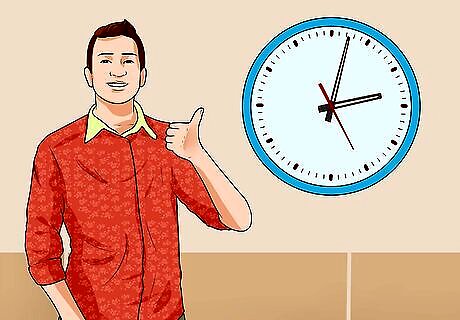
Be patient. It can be frustrating to wait for therapy and medications to do their jobs, but you must. Treatment for depression takes time. Continue your treatment regimen as suggested by your doctors and eventually you will start to see positive changes. If not, you can always try new medications or different therapeutic approaches. Don't give up.




















Comments
0 comment